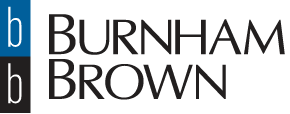June 15, 2012
By:
An insurer owes a duty to attempt to settle within policy limits when liability is reasonably clear, even if the claimant has not made a settlement demand.
It is well-established in California that an insurer owes a duty to its insured to accept a reasonable settlement demand within policy limits. In Du v. Allstate Insurance Company, ___ F. 3d ___ (9th Cir. 2012), 2012 U.S. App Lexis 11755 (2012), the Ninth Circuit Court of Appeals explained that an insurer's duty is broader than just the obligation to accept a reasonable demand, and extends to attempting to effectuate settlement within policy limits even if Plaintiff has not made a demand.
Deerbrook Insurance Company's insured, Joon Hak Kim, caused an auto accident that injured Yang Fang Du and three other people. After investigating the accident, Deerbook became aware that Du was claiming a serious injury, and that Kim was liable. Katzman, the attorney for all four claimants, made a global demand of $300,000 (the aggregate policy limits). Deerbrook rejected that offer and suggested that they settle Du's claim separately. Katzman rejected the suggestion. Deerbrook subsequently offered its $100,000 per person limit to Du, which Katzman rejected as "too little too late." Du then sued Kim and obtained jury verdict in excess of $4 million, of which Deerbrook paid the $100,000 limit under Kim's policy. Kim assigned his bad faith claim to Du in exchange for a covenant not to execute.
Du sued Deerbrook, alleging that Deerbrook breached the implied covenant of good faith and fair dealing to Kim when it failed to affirmatively settle Du's claim within Kim's policy limits, even after Kim's liability for a judgment in excess of the policy limits had become clear. At trial, the district court rejected Du's proposed jury instruction to the effect that the jury could consider whether Northbrook "did not attempt in good faith to reach a prompt, fair, and equitable settlement" after Kim's liability "had become reasonably clear." The district court ruled that an insurer has no duty to initiate settlement discussions in the absence of a settlement demand. It also ruled that there was no factual foundation for the instruction in this case because the issue of settlement "was broached at a sufficient early time in the litigation that it vitiates any claim or effective claim insofar as a failure to initiate a settlement discussion."
At trial, the court gave clear instructions that Deerbrook could only be found liable for bad faith if it had failed to accept a reasonable settlement demand. The jury found in favor of Deerbrook. Du appealed, arguing that the court had wrongly denied the proposed jury instruction. The appellate court held that there is a duty to attempt to settle in the absence of a demand, but affirmed the judgment in favor of Deerbrook because there was no factual basis for asserting the instruction on that duty in Du's case.
The duty to settle broadly requires the insurer to effectuate settlement when liability is reasonably clear, even if Plaintiffs have not made a settlement demand, because a conflict of interest exists whenever there is a significant risk of an excess judgment and there is a reasonable opportunity to settle within those limits. The insurer should therefore attempt to settle even if no demand has been made to it. Although California courts have not squarely addressed the question, the Ninth Circuit previously interpreted California law as imposing such a duty, and California courts have not ruled to the contrary. The "genuine dispute" rule does not insulate an insurer from bad faith liability for the failure to settle a third party claim. That rule traditionally applies in the context of disputed coverage in first-party cases. Third party cases are different because, under California law, a good faith belief in noncoverage does not insulate an insurer from the duty to settle third party claims.
The district court did not abuse its discretion in ruling that there was no basis for Du's proposed jury instruction under the facts of the case. A jury instruction must have a foundation in the evidence. The record supported Deerbrook's contention that it made its $100,000 offer to Du in a timely fashion given the history of the parties' communications and Deerbrook's attempts to obtain necessary information about Du's injuries. There was no evidence that Deerbrook should or could have made an earlier offer. Accordingly, judgment was affirmed in favor of Deerbrook.
_________________________________
Gibbs v. State Farm Mutual Insurance Co., 544 F. 2d 423, 427 (9th Cir. 1976).
Susan E. Firtch specializes in advising insurers on their rights and obligations under insurance policies for all types of lawsuits. Ms. Firtch can be reached at 510.835.6709 or sfirtch@burnhambrown.com.

